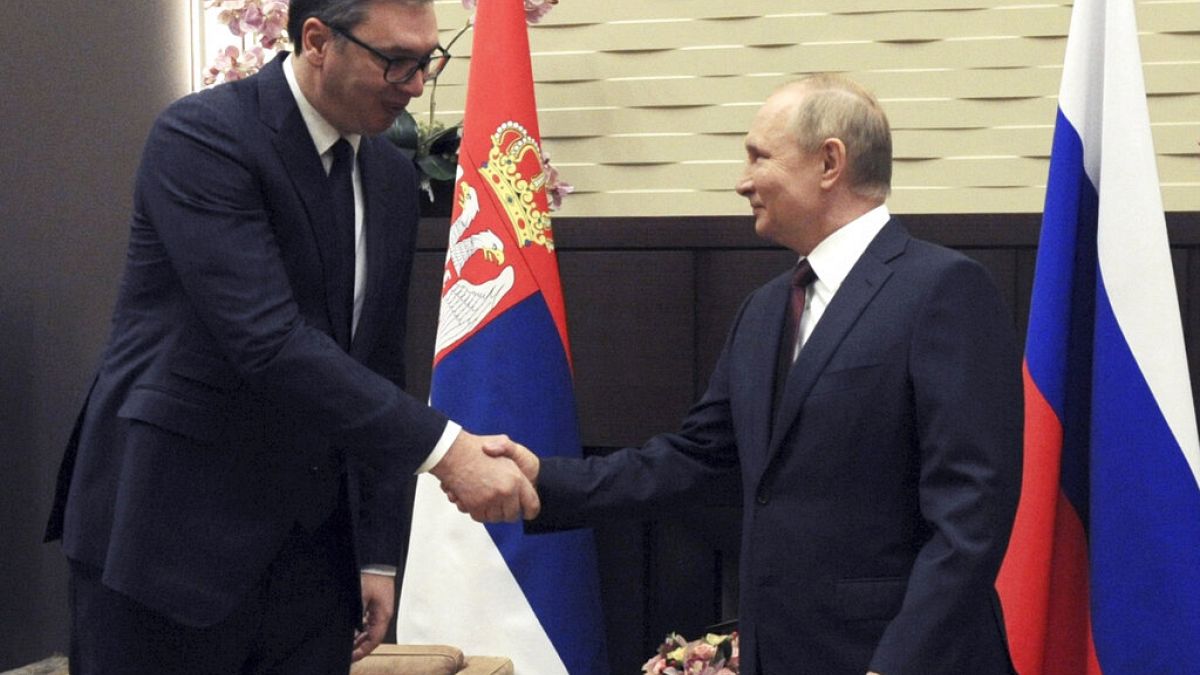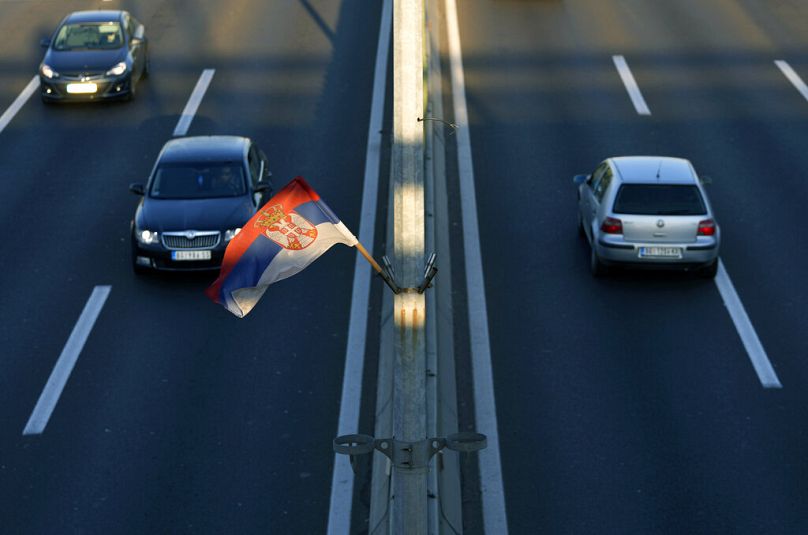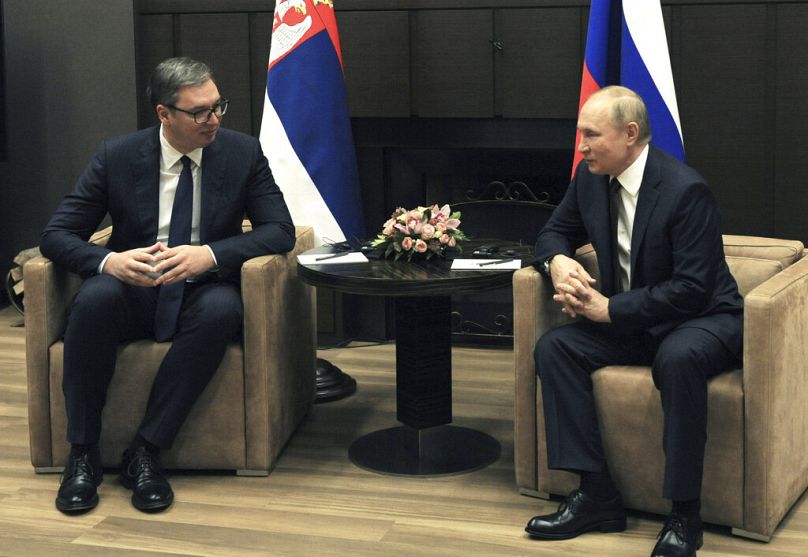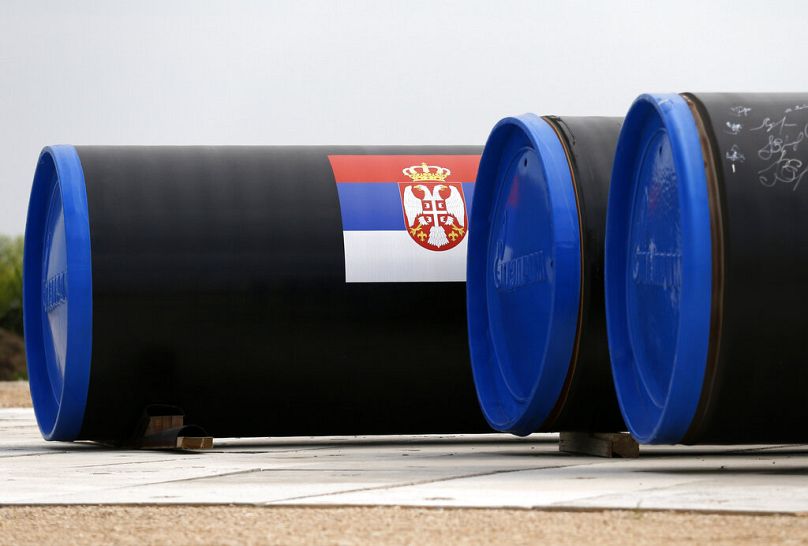Gas prices in Serbia will remain stable for another six months in a relief for President Vučić after a fraught meeting with Putin last month. But at what cost? asks LSE's Vuk Vuksanovic.
Serbian President Aleksandar Vučić had a very unpleasant task when he met his Russian counterpart Vladimir Putin in Sochi last week to plea for a lower price for Russian gas.
Indeed, before travelling to Russia, President Vučić had told the Serbian press that he would "ask and beg."
In the end, Putin fulfilled the request of his Serbian guest, meaning the Serbian president will have one less problem to worry about ahead of the April 2022 Serbian general election.
However, the question remains as to whether there will be a price to be paid.
Serbia's gas supply on the line
Why was this an unpleasant task for Vučić? Serbia is completely dependent on Russia for its gas supplies.
In 2008, Russia acquired majority shares in NIS, Serbia’s national oil and gas company. The sale was made below market price, in return for Russia’s protection at the UN level on Kosovo and the promise that Moscow would construct the now-defunct South Stream pipeline over Serbian territory. The opening of the Turkstream pipeline in 2021 confirmed the reality of energy dependence.
However, in light of the ongoing energy crisis in Europe, Serbia now fears high Russian gas prices.
In 2022, Serbia is poised to undergo presidential and parliamentary elections, as well as elections in the capital, Belgrade.
President Vučić and his Serbian Progressive Party (SNS) are almost certain to win. But both still face the challenges of the COVID-19 pandemic and the economy, which must not experience a major downturn until after they consolidate power.
The Serbian leadership needs to show that despite the pandemic, the economy is still growing. That was the primary reason why the government enthusiastically embraced Chinese financing, despite the ensuing degradation of environmental and labour standards.
The UAE is also useful as a source of cash and an instrument of domestic promotion. However, the high gas price would complicate things.
The first reason for Vučić’s concern was more immediate: the start of the cold season. High gas prices lead to higher costs for heating, electricity and groceries: all the things voters observe in the run-up to elections. In mid-November, high food and energy prices pushed the inflation rate to 6.6 per cent.
Serbian pro-government daily Večernje novosti, despite being known for uncritical and hyperbolic praise of Serbian leadership and Serbo-Russian ties, gave an accurate overview of Serbia’s concern ahead of the Putin-Vučić meeting.
Serbian gas consumption has doubled compared to previous years. Serbia has been paying Russia $270 (€239) per 1,000 cubic meters because, since the Soviet days, Serbia bought Russian gas based on a system whereby 100 per cent of the pricing is derived from the oil formula.
In light of the energy crisis, Russia’s state-owned energy corporation Gazprom proposed that price be determined 30 per cent by oil formula, 70 per cent by spot market prices, which would see Serbia newly charged $790 (€698) per 1,000 cubic meters.
This is too much for the Serbian leadership. So too is the alternative proposal, whereby the price would be determined 70 per cent by oil formula and 30 per cent by spot market prices: all in all, $510 (€451) per 1,000 cubic meters.
Not such an easy task
The Serbian head of state was hoping to secure a new arrangement, in which Serbia would be buying three billion cubic meters of Russian natural gas annually for ten years.
Pro-government media in Serbia flaunted the notion that Vučić could secure a fairer Russian gas price than countries like Germany, Belarus and Armenia had.
The difference was that Germany is a major customer of Russian gas, with a long-term supply contract, and Belarus and Armenia are Russia’s allies in the post-Soviet space.
More importantly, while Serbia insisted the focus would be on gas supply, Russia's presidential spokesman Dmitry Peskov stated that the two leaders would be discussing bilateral ties, with energy being just one of the issues that would be addressed.
Why is this important? For the past year, Serbia did a slight re-pivot towards Russia due to the election of Joe Biden in the US. However, 2020 was a very bad year for Serbo-Russian ties. Putin did not forget that.
What happened in 2020? Putin did not like the idea that Vučić was trying to resolve the Kosovo dispute with Donald Trump’s assistance, which would mean Moscow would lose one of its last assets in the Balkans, and Belgrade's shifting towards Washington.
To curry favour with the West, pro-government tabloids in Serbia blamed pro-Russian players for instigating violent anti-lockdown protests in the summer of 2020.
Trilateral military drills with Russia and Belarus were also cancelled. In the meantime, China replaced Russia as Serbia’s primary non-Western partner.
Putin did not forget how Vučić tried to trick him when he thought he would get a better bargain from the West. The meeting was almost certainly used to discipline Vučić.
Nevertheless, Vučić got what he wanted. After the meeting, it was announced that the gas price for Serbia would remain at $270 and the amount of delivered gas would increase for the next six months.
No one knows what will happen after those six months end. But Vučić got a gift from Putin for the heating season -- and for the elections. Vučić can also promote himself to his constituents as a skillful leader who enjoys the friendship of brotherly Russia.
What were the concessions offered?
It should be presumed, though, that Putin’s gift comes with strings attached.
On that same day, news started circulating that Russia’s state nuclear construction company Rosatom could be constructing a nuclear power plant in Serbia, although Serbian experts don't believe Serbia has the necessary expertise or resources for such an enterprise.
Russian companies are also set to get the job of constructing the Belgrade urban and suburban railway system.
Most importantly, there are talks that Serbia might be getting Kornet anti-tank missile systems from Russia: a dangerous scenario since in late 2019, Serbia, in fear of US sanctions, gave up on purchasing Russian weaponry.
It remains to be seen whether these transactions will be completed, and indeed whether any other favours that Vučić promised to Putin will be uncovered later in the game. After all, there's no such thing as a free lunch.
Vuk Vuksanovic is a researcher at the Belgrade Centre for Security Policy (BCSP) and an associate of LSE IDEAS, a foreign policy think-tank of the London School of Economics and Political Science (LSE). He got his PhD in international relations at the LSE. He has published widely on modern foreign and security policy issues.



